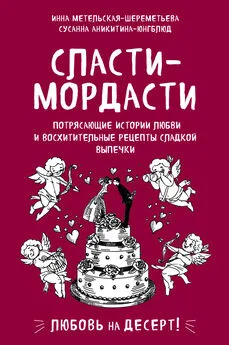Инна Метельская-Шереметьева - Back to the past
- Название:Back to the past
- Автор:
- Жанр:
- Издательство:Литагент Selfpub.ru (искл)
- Год:2017
- ISBN:нет данных
- Рейтинг:
- Избранное:Добавить в избранное
-
Отзывы:
-
Ваша оценка:
Инна Метельская-Шереметьева - Back to the past краткое содержание
Back to the past - читать онлайн бесплатно ознакомительный отрывок
Интервал:
Закладка:
By the way, decorative clothing functions in Papuan culture is especially strong. In some pictures in the museum and even in some tribes in real life, we saw some richly and even smartly “dressed” Papuans with splendid crowns made of feathers, and wearing bright decorative elbow and knee pads with several layers of beading and rivieres. The fact that the person was actually naked wasn’t obvious to the eye. Different tribes have different traditions in this aspect though. The custom of men’s clothes usually differs, whereas women’s outfits are the same almost everywhere – they are aprons or skirts made of grass (tapa), which vary only in length from tribe to tribe.
The main element of men’s clothes is a phallocrypt – a device covering a man’s reproductive organ. In the tribes of Irina Jaya it’s called a koteka. In the Dani tribe, the koteka is made from the hard peel of a local cucumber (gourd) whose texture reminds one of a light-yellow covered pumpkin. A koteka’s size depends on a warrior’s status and on whether it is meant for everyday use or for ceremonies. The length as a rule varies from 21 to 47 centimeters. The wider end has a special cut in it and a small string to tie the “decoration” to the body. In addition, kotekas can be attached by a cord going around the waist or by a rather wide tapa belt.
In the Lani and Yali tribes, kotekas are wider and are made from the same vegetable, but harvested in a later period. Except for dissimilar sizes, they are in principle no different from the Dani’s phallocrypts, but by function they also serve warriors as convenient pouches to carry small things, including the ever popular tobacco.
In the Kombai and Korowai tribes, kotekas as such don’t exist. Men cover themselves with a small leaf case, rolled from a palm-tree leaf. I must say here that walking around the jungle completely without a protective cover is too dangerous. Numerous thorny plants, the necessity to walk through thick bushes or climb rough trees will eventually cause an injury. However, we noticed that both the Korowais and Kombais in some villages also wear belts. It is difficult to explain their function. Most probably, it is a type of men’s decoration which is a symbol of belonging to a certain clan.
Compared to the men’s belt (the mahl), the women’s belt is additionally decorated with a fringe which sometimes goes down to the knee and in this way it looks more like a skirt. Among the tribes of the Baliem Valley, we saw women’s mahls colored in red and yellow with natural dyes. The Kombais and Korowais’ women’s belts are not additionally colored or decorated and have the natural color of dry grass. By the way, the fact that the women’s belt exists allowed Mikloukho-Maklay to make a hypothetical conclusion that these tribes have a feeling of shame. From a functional point of view, such a skirt doesn’t protect one from anything, but it is an obligatory part of women’s outfits. The conclusion that the mahl is just a way to identify sex seems more logical to me. My example won’t be the most convincing but nonetheless here it is: tying a blue or pink ribbon around a baby nest to identify a boy or a girl in our culture is similar to the Papuan tradition of wearing a woman’s mahl. In all fairness, I have to say that the hospitable Korowai and Kombai tribes we spent quite a lot of time with had some elements of a feeling of shame. In particular, not only women but men as well never completely exposed themselves in our presence. Isaya explained to us that they don’t do it even in each other’s presence either. Only family couples are an exception, and only at night. By the way, the Kombais wearing miniature kotekas think of themselves as nicely dressed. However, when the Papuan men caught us swimming in the river totally naked, they laughed at us and probably condemned us as well.
Speaking about clothes, I can’t but mention such an important element of the Papuan culture as their custom of rubbing their bodies with clay, creating tattoos, and having piercings and cuttings done to them. Unfortunately, we obviously lacked some of the knowledge necessary to grasp the idea of all these actions but I am sure that only true specialists can analyze the precise meaning of the different ornaments, and their possible connection to irrational, magical and ritualistic purposes.
Chapter Three.
Preparing to Start.
“We still have 14 minutes to go…” (Song lyrics)
Andrey’s Story Continues.
For us, arriving in Wamena wasn’t only marked by the usual pre-start fuss (i.e., working out the route, buying food supplies, determining the cost and dates of our flight by the missionary plane), but also by some unpleasant events. Two out of four of us got sick, with Michael feeling really bad. The reason must have been not so much with the change in climate, with its frequent temperature drops between the open-air heat and freezing cold of our air-conditioned rooms, but our old tiredness brought from Moscow. We had worked really hard the previous year, but none of us managed to rest well and return to good physical shape before the trip. Alexander had just come back from a shooting expedition somewhere in the Ussuriysk taiga; Michael and I had been working overtime at the end of the year to catch up on some work and had been busy doing so almost 24 hours a day. As for Alexey, he set off without any preparation at all, joining us literally from behind his desk. I believe that those who decide to follow our steps on the route should be more careful during the preparation stage in Russia and take some vitamins, maybe, or go to the gym for a while… I don’t know exactly. We did it the way we did it.
As a result of all the abovementioned issues, on December 25 th, Michael went down with the suspicion of acute bronchitis. The fever was well over 39º C, he was terribly weak and there were only a couple of days left to the start. We did our best to speed up Michael’s recovery as much as possible – went through the instructions and precautions for all the medications in the first-aid kit, consulted the local doctor, and gave him a series of antibiotic injections. Very likely, that thanks to our efforts, all the hotel workers’ sincere care, undying attention on Isaya’s part as well as Michael’s rare courage and optimism, the disease retreated rather quickly. On December 27 th, still shaky on his feet with weakness, Michael came out on the veranda of the bungalow to write in his diary. We realized that everything was going to work out. Nothing was going to fall apart! We had less than 28 hours left to prepare, so we took a separate mini-bus and rushed to Wamena. Every three hours, Alexander contacted Michael on the radio to make sure our “patient” was feeling ok and to inform him about our route, which he was following non-stop on his GPS-navigator. It must be said that Michael was very patient about our excessive care and didn’t ask us to leave him alone even a single time.
We managed to hire a plane pretty easily at a small airfield not far from the main Wamena airport. As opposed to last year, our plane was for seven people. It was much bigger in size and capacity than the one we had the previous time, which meant the problem of extra-weight wasn’t as serious. Since various photographic and TV equipment made up the majority of our luggage, the extra-weight problem was not an idle inquiry. I am sure you will agree it would be pretty nasty to find yourself in the jungle with minimal food or medical supplies, without any spare clothes or a spare set of batteries, or without practically any presents for the locals. Thank God, we didn’t have to face that. So, full of bright hope we set off on a Wamena pre-start shopping spree. Naturally, Alexander reported our luck right away and Michael, suffering from our minute-by-minute reports, was probably sorry that the charge in those radio batteries was most likely good for another ten hours.
The majority of our purchases was made up of salt, matches, local tobacco (the Papuans didn’t believe in our cigarettes) and rice. From Moscow, we brought all kinds of instant soups and cereals, so we patiently looked at Isaya as he bought cases of Rollton instant noodles, because we understood that our buckwheat and pea soup would be much tastier. By the way, we also brought several packs of freeze-dried beets, cabbage, carrots and meat. They turned out to be great when we were hiking. These kinds of food take up minimum space and weigh very little, but bring considerable variety into your diet at the same time. We hadn’t forgotten about lemons either. They are a good remedy when you have a water deficit and a salt imbalance. Having given it a little thought, we decided to take some sugar with us as well. It would be hard to carry but we were going away for a long time and the chances were that we would want some sweet tea sooner or later. This decision proved to be right too. We also bought some caramel candies for the Papuan kids. Most of the candies that we had brought from Moscow melted in the heat and we hurriedly gave them out to the Wamena children before they completely lost their marketable condition. By the way, we noticed that the town boys and girls show much more interest in candies than the jungle kids. The tribal children accepted our presents in a very calm way without showing any enthusiasm and easily gave them away to their parents.
We had less than ten hours before the flight. Clouds rolled in and covered the sky. It started raining and got much colder. We called a meeting of the Big Council on the veranda of the Baliem Valley Hotel. The conversation wasn’t going well. We got through to our families using the satellite phone. Their voices in Moscow sounded rather cheerful, probably too cheerful to be sincere. Moscow was preparing to celebrate the New Year. As for our wives, mothers, children and sisters – they were preparing for a three-week-long wait for our return and trying to convince us that they weren’t worried at all and believed everything was going to be alright.
As strange as it may seem after these short conversations with our friends and families, we sort of totally relaxed. We must have felt that we were worried much less than those who we had left behind, which meant that we just had to concentrate and set our minds on normal work – to specify the route’s details, get the equipment ready, check again and if necessary re-pack the luggage. We spent most of the night doing all these simple things. By this time, the rain had almost stopped and the sky over the valley was turning pink. Sunrises and sunsets here are magnificently beautiful. The sky looks like a layered cake where the cloud layers are all in different and strange shades – from deep inky blue-green to cranberry, orange, sandy pink and pearl colors. A photographer’s dream! But for the thick fog, the pictures would have come out fantastic! For some reason we didn’t want to go into our rooms. Isaya was snoozing in an armchair, Michael was lying on a tourist mat. Alexander was sitting awake next to him. Alexey and I were drinking coffee for a long time and smoking, but probably fell asleep for a short while too because when our mini-bus driver came up and invited us aboard, we felt fresh and rested. However, the American pilot who met us at the airfield didn’t seem to have had enough sleep at all. He was the same contract pilot who flew us to Yaniruma the previous year. He threw a gloomy look at our luggage and then at us – recognition flashed in his eyes. Automatically continuing his mumbling, he started loading our things but the tone and the intonation of his voice had definitely changed. Translated his mumbling into Russian would sound like this: “Why the hell are they going into the jungle?” (at the beginning) and “They’ll leave and I’ll have to worry about them!” (at the end). Alexey sincerely praised the pilot’s new plane which totally melted the ice in the grave American aviator’s heart. The last minutes before take-off. Like the song about Gagarin goes: “We still have 14 minutes to go”. We board and fasten our seatbelts. A short runway. The cameras are ready to shoot. Everybody is concentrated and attentive. Isaya is whistling some alarming melody. Michael is the only one who is serenely sleeping in his seat, having cozily covered himself with someone’s windbreaker. We take off! Wamena remains far below.
Читать дальшеИнтервал:
Закладка:
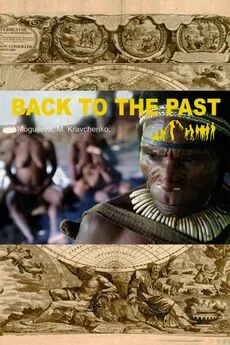
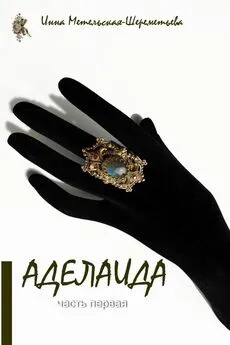
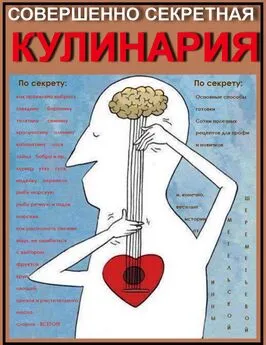
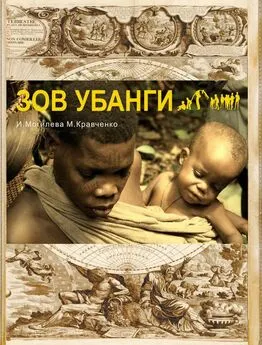

![Инна Метельская-Шереметьева - Кулинарная КОНСЕРВАтория [Проверенные годами и поколениями рецепты заготовок от классических до экзотических] [litres]](/books/1060030/inna-metelskaya.webp)


